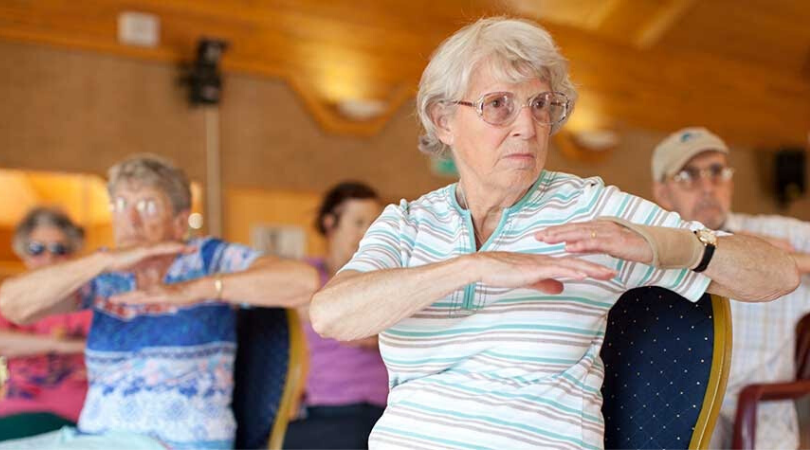How to stay mentally and physically active as you get older
26 February 2020
Written bySamuel Holmes

National Office
Please enter the office location/term above to receive results for your closest office as well as information matches
Retired surgeon Roger Allsopp was a sprightly 70 when he became the oldest person to swim the English Channel. It’s a feat that would have earned the approval of Joseph Pilates, inventor of the famous exercise regime, who said that our 70s should be the prime of life.
Most of us slow down once we pass 65. We no longer sprint up the stairs or run for the bus, and we find ourselves forgetting the names of people we just met. But rather than accept this as inevitable, keeping mind and body active can slow down the ageing process – and help us carry on enjoying life.
Luckily, you don’t have to swim the channel – even small amounts of exercise can be good for you. Research shows that older people who exercise are not only fitter but perform better on tests of mental agility.
There are four types of physical exercise, each with important benefits:
If you are not very mobile, there are still gentle exercises you can do at home – often using nothing more than a sturdy chair. The NHS site has lots of good suggestions. Here are two:
If you are nervous or unsteady, it’s a good idea to make sure that someone else is present to help you if you get out of breath. Moving about even a little bit to get your muscles, heart and lungs working is better than not moving at all.
Exercising your mind might sound daunting, but in practice, there are lots of pleasurable ways to make your brain work a bit harder. Jigsaw puzzles are a great way to improve short-term memory and spatial skills. They’re also versatile – you can do them on your own or with friends, and choose anything from an easy 100-piece puzzle to a mammoth 1,000-piece brain buster.
Crosswords are not only fun, but can widen your vocabulary and improve your memory. If you’re more of a numbers person, then give Sudoku a try instead. Doctors now think that keeping your brain active helps build up a ‘cognitive reserve’ so even if you do develop dementia, you retain your mental abilities for longer.
More social activities – board games like backgammon, or card games like bridge – can also keep your brain agile. One study by Southampton University showed that even bingo boosts players’ ability to focus on a task, memorise information and react quickly. Playing games can also reduce loneliness and improve your mental health – research has found that people who have close friends are more likely to remain mentally sharp past the age of 80.
So the good news is that getting old doesn’t mean you have to wind down but can be a time to enjoy new physical and mental challenges. As Allsop said after his record-breaking swim, “Retirement is a great opportunity to take exercise more seriously and make it a part of everyday life!”
Get in touch with your local Radfield Home Care office today and find out more about the support we offer and the difference we can make.